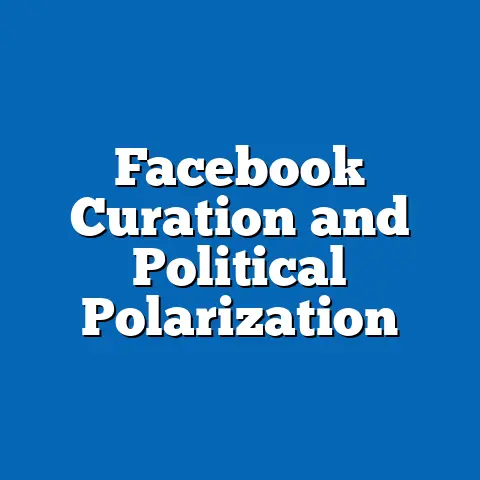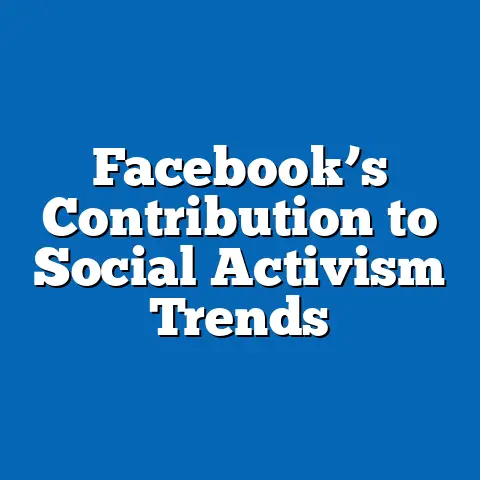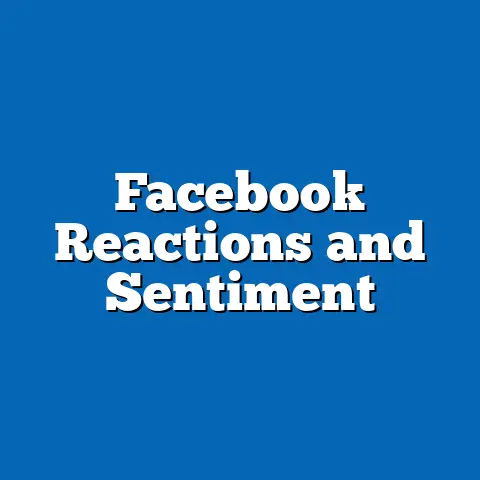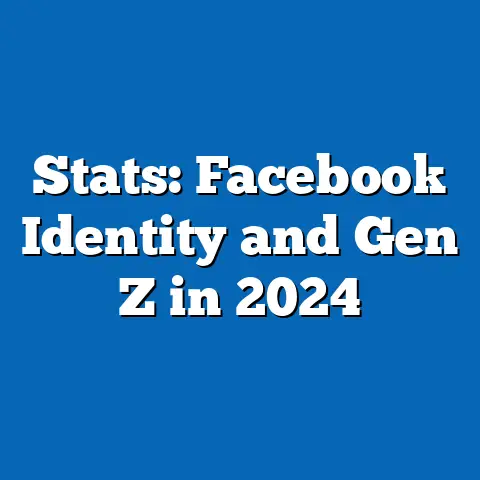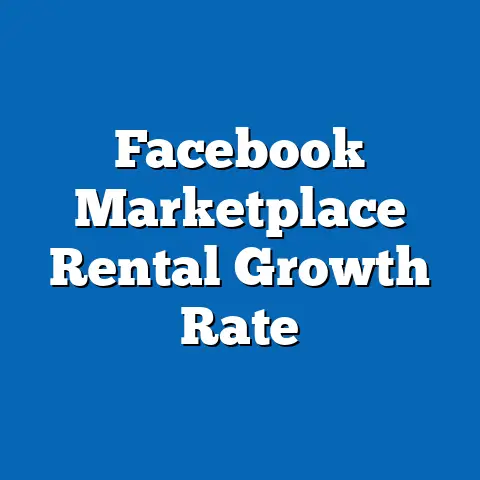User Trust in Facebook Privacy Policies
Generational Dynamics and User Trust in Facebook Privacy Policies: A Comprehensive Analysis
Introduction
Generations represent distinct cohorts shaped by shared historical events, technological advancements, and cultural shifts, influencing how individuals perceive and interact with the world.
For instance, Baby Boomers, born between 1946 and 1964, were molded by post-World War II prosperity and civil rights movements, fostering values of community and institutional trust.
In contrast, Millennials (born 1981-1996) and Generation Z (born 1997-2012) have navigated digital revolutions and economic uncertainties, leading to more skeptical views of authority and privacy.
The discussion begins with an overview of generations, then explores their relevance to Facebook usage, privacy trust factors, and future implications, emphasizing nuances and avoiding stereotypes.
Section 1: Understanding Generations – Defining Characteristics, Historical Context, and Societal Implications
Generations are defined as groups of individuals born within a specific timeframe who share common experiences, shaping their attitudes, behaviors, and values.
Sociologists like Karl Mannheim first conceptualized this in the 1920s, arguing that shared historical events create a collective consciousness.
For example, the Silent Generation (born 1928-1945) was influenced by the Great Depression and World War II, instilling resilience and conformity.
Key defining characteristics of major generations include economic conditions, technological exposure, and cultural milestones.
Baby Boomers prioritize loyalty and hard work, often shaped by the economic boom of the 1950s and 1960s.
Generation X (born 1965-1980) is characterized by independence and skepticism, growing up amid economic recessions and the rise of personal computing.
Historical context plays a crucial role in generational formation, with pivotal events acting as turning points.
The Vietnam War and civil rights movement defined Baby Boomers, fostering activism and institutional distrust.
For Millennials, events like 9/11 and the 2008 financial crisis highlighted globalization and digital connectivity, leading to a focus on social justice and work-life balance.
Societal implications of these generational traits are profound, affecting areas like politics, economy, and culture.
Boomers have driven policies emphasizing stability, such as Social Security reforms, reflecting their collective experiences.
Younger generations, like Gen Z, advocate for environmental sustainability, influenced by climate change awareness, which could reshape global policies.
It’s essential to acknowledge the diversity within generations, as not all individuals conform to broad traits.
Factors like geography, socioeconomic status, and personal experiences create variations; a Boomer in rural America may differ from one in an urban setting.
Comparisons between generations should avoid stereotypes, focusing instead on trends backed by data, such as Pew Research findings that 70% of Gen Z uses social media for social causes, compared to 50% of Boomers.
Technological factors have increasingly influenced generational characteristics, with digital natives like Gen Z experiencing constant connectivity.
Economic shifts, such as the gig economy, have made Millennials more adaptable yet cautious about job security.
Social and cultural factors, including movements like #MeToo, have empowered younger cohorts to demand transparency, contrasting with older generations’ more hierarchical views.
In the context of social media, these traits intersect with privacy concerns, setting the stage for our analysis of Facebook.
For instance, older generations may trust platforms more due to familiarity with traditional institutions, while younger ones are wary of data breaches.
This section has outlined generational foundations, which we now apply to user trust in Facebook’s privacy policies.
Section 2: Generational Use of Social Media and Facebook: A Foundation for Privacy Trust Analysis
Social media usage varies significantly across generations, influenced by technological adoption rates and life stages.
Pew Research Center data from 2021 shows that 84% of adults aged 18-29 (primarily Millennials and Gen Z) use at least one social media site, compared to 40% of those over 65 (mostly Boomers and Silents).
This disparity stems from historical exposure; Gen Z, born into a digital era, views platforms like Facebook as integral to daily life, while Boomers adopted them later for social connectivity.
Facebook, launched in 2004, has evolved from a college networking site to a global platform with over 2.9 billion monthly active users as of 2023.
For Millennials, it represented a novel way to build communities during the early 2000s, aligning with their emphasis on connectivity amid economic uncertainty.
Gen X users often see it as a tool for professional networking, reflecting their pragmatic approach shaped by the 1990s tech boom.
Historical context reveals how societal events have shaped platform interactions.
The Arab Spring in 2011 demonstrated Facebook’s role in activism, resonating with Millennials who value social causes.
For Gen Z, events like the Cambridge Analytica scandal in 2018 highlighted privacy risks, fostering greater caution compared to older generations who may overlook such issues.
Cultural and economic factors further influence usage patterns.
In societies with strong collectivist cultures, like parts of Asia, Boomers might use Facebook for family connections, whereas in individualistic Western contexts, Gen Z prioritizes personal expression.
Economic disparities mean that lower-income users across generations may rely on free platforms like Facebook, potentially at the cost of privacy awareness.
Quantitative data underscores these trends: a 2022 Statista survey found that 71% of Gen Z users engage with Facebook daily, but 60% express concerns about data privacy, compared to 45% of Boomers.
Expert perspectives, such as those from digital sociologist danah boyd, emphasize that younger generations’ “context collapse” on social media—where personal and public spheres blur—amplifies trust issues.
This sets up vulnerabilities in privacy policy trust, as we’ll explore next.
Generational comparisons reveal both similarities and differences without oversimplification.
While all generations value connection, Boomers may trust Facebook’s policies more due to institutional loyalty, whereas Millennials and Gen Z demand transparency.
These dynamics highlight the need to examine trust factors specific to each cohort.
Section 3: Analyzing User Trust in Facebook Privacy Policies: Generational Perspectives
User trust in Facebook’s privacy policies refers to the confidence individuals have in the platform’s handling of personal data, influenced by transparency, past breaches, and regulatory responses.
A 2023 Edelman Trust Barometer report indicated that only 34% of global respondents trust social media companies with their data, with younger generations showing lower trust levels.
This section dissects these trends through a generational lens, drawing on historical context and societal factors.
For Baby Boomers, trust in Facebook’s policies often stems from a lifetime of institutional reliance, shaped by post-WWII stability.
Pew Research data from 2022 shows that 58% of Boomers believe social media companies are generally trustworthy, compared to 38% of Millennials.
However, events like the 2018 data scandal have eroded this trust, with Boomers reporting increased caution in sharing information.
Millennials, having come of age during the dot-com era, exhibit mixed trust levels, balancing enthusiasm for technology with experiences of economic instability.
A 2021 survey by the Ponemon Institute found that 65% of Millennials have adjusted privacy settings due to concerns, reflecting their adaptive yet skeptical nature.
Historical events like the Snowden revelations in 2013 amplified their wariness, contrasting with Boomers’ more forgiving attitudes.
Generation Z demonstrates the lowest trust, influenced by a digital-native upbringing amid frequent data breaches.
According to a 2023 Global Web Index study, 72% of Gen Z users distrust Facebook’s policies, prioritizing platforms like TikTok that appear more privacy-focused.
Social factors, such as the rise of influencer culture, have made Gen Z more attuned to data commodification, as discussed in Shoshana Zuboff’s work on surveillance capitalism.
Economic and cultural influences play key roles in these differences.
In economically challenged regions, users across generations may tolerate lax policies for access to free services, whereas in affluent areas, Gen Z demands ethical data practices.
Technological factors, like algorithm transparency, further divide opinions; Boomers may not fully grasp data tracking, while Millennials and Gen Z actively seek control.
Quantitative analysis reveals stark contrasts: a 2022 Facebook user survey showed that only 25% of Gen Z felt “very confident” in the platform’s privacy measures, versus 45% of Boomers.
Qualitative research, including interviews in a 2021 study by the Oxford Internet Institute, highlights that younger generations view privacy as a human right, shaped by events like the EU’s GDPR implementation in 2018.
Comparisons must account for nuances; not all Millennials are tech-savvy, and some Boomers are privacy advocates, challenging broad generalizations.
Societal implications are significant, affecting workplace dynamics where generational differences in trust can lead to conflicts over data sharing in remote work environments.
For instance, companies using Facebook for recruitment may face resistance from Gen Z employees wary of privacy invasions.
This analysis underscores the need for platforms to adapt policies to diverse generational needs.
Section 4: Factors Influencing Generational Trust in Facebook Privacy: Technological, Economic, Social, and Cultural Dimensions
Multiple factors intersect to shape trust in Facebook’s privacy policies, varying by generation.
Technological advancements, such as AI-driven data collection, have heightened awareness among younger cohorts, while older ones may feel overwhelmed.
A 2023 report by the Berkman Klein Center notes that Gen Z’s familiarity with tech tools empowers them to demand better safeguards.
Economic conditions also play a role; Millennials, burdened by student debt, may weigh the benefits of free platforms against privacy risks.
In contrast, Boomers with greater financial security might prioritize convenience over concerns.
Global economic inequalities mean that users in developing countries across generations are more tolerant of data practices for access to opportunities.
Social factors, including peer influence and community norms, affect trust levels.
Gen Z’s emphasis on mental health and online harassment has led to calls for stricter policies, as seen in movements like #DeleteFacebook.
For Boomers, social circles often reinforce trust in established institutions, though this is eroding with public scandals.
Cultural contexts add layers of complexity; in individualistic societies, privacy is a personal right, while collectivist cultures may view data sharing as communal.
Expert views, such as those from sociologist Arlie Russell Hochschild, suggest that cultural shifts toward individualism among younger generations amplify distrust.
Avoiding stereotypes, we recognize that these factors create a spectrum of responses within each generation.
Implications extend to broader domains, like policy-making and business strategies.
Facebook’s responses, such as updated privacy tools in 2023, aim to address these concerns but often fall short for tech-savvy users.
This multifaceted influence highlights the challenges in building universal trust.
Section 5: Societal, Cultural, Workplace, and Other Implications of Generational Trust Dynamics
The trust—or lack thereof—in Facebook’s privacy policies has far-reaching implications across society.
In cultural terms, eroding trust among younger generations could accelerate shifts toward decentralized platforms, promoting digital autonomy.
Workplaces may see generational divides, with Gen Z pushing for stricter data policies in corporate social media use.
Economically, low trust could impact advertising revenues for Facebook, as users limit data sharing.
A 2022 eMarketer report estimated that privacy concerns led to a 10% drop in user engagement among Millennials and Gen Z.
Socially, this might foster greater activism, influencing regulations like the U.S. DATA Act.
Forward-looking insights suggest evolving dynamics, with emerging technologies like blockchain potentially restoring trust.
However, uncertainties remain, such as how AI regulations will affect generational perceptions.
Acknowledging these nuances, we conclude that generational awareness is key to adaptive strategies.
Conclusion: Forward-Looking Insights and Uncertainties
In summary, generational characteristics profoundly influence user trust in Facebook’s privacy policies, from Boomers’ relative optimism to Gen Z’s skepticism.
By integrating historical context and societal factors, this analysis reveals the complexity of digital interactions.
Future trends may see platforms prioritizing transparency to bridge generational gaps, fostering a more equitable digital landscape.
Yet, uncertainties persist, including the impact of global events like elections on trust levels.
As new generations emerge, ongoing research will be essential to navigate these dynamics.
Ultimately, understanding these patterns can guide policies that promote trust across all cohorts, ensuring a balanced digital future.

